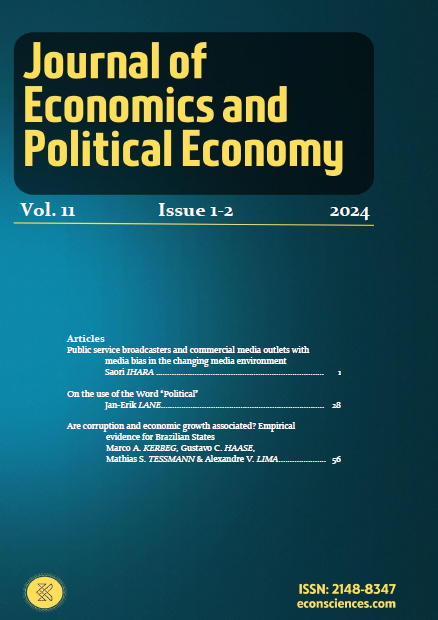Abstract
This paper explores the semantic complexities of the term "political" within scientific language. It identifies three distinct problems demanding separate analysis: (P1) Identifying Definitions: The first problem focuses on uncovering the explicit or implicit definitions various authors use for "political." It seeks to identify the properties that define political behavior, actions, systems, etc., through language descriptions. The goal is to establish a comprehensive list of these definitions, acknowledging the potential for partial definitions specific to certain contexts (e.g., political actions vs. political corporations). (P2) Conceptual Diversity: The second problem delves into the potential for distinct conceptualizations of "political" even when similar definitions are used. Here, the analysis ensures that definitions apply to the same range of entities and allows for the broadest possible interpretation (e.g., encompassing both behavior and action). This may involve creating a taxonomy of terms used alongside "political" to establish the level of complexity each definition introduces. (P3) Explicating "Political": The third problem addresses the possibility of referential diversity, where the term "political" might encompass different sets of entities depending on the definition. If such diversity exists, the paper explores the possibility of constructing an "explication" – a single, overarching concept of "political" that fulfills specific criteria. These criteria encompass clarity, non-redundancy, inclusivity within the relevant domain, theoretical fruitfulness, and mutual exclusivity of sets defined by separate partial definitions. The paper focuses on analyzing specific definitions proposed by prominent scholars like Max Weber, David Easton, and Harold Lasswell & Abraham Kaplan. By examining these definitions through the lens of the proposed criteria, the research aims to determine their effectiveness in capturing the multifaceted nature of "political" within scientific discourse.
Keywords. Political Theory; Conceptual Analysis; Semantics; Definition; Explication.
JEL. A10; B15; B52; D01; D71.
References
Almond, G.A., & Coleman, J.S. (1960). The Politics of the Developing Areas. Princeton University Press.
Almond, G.A., & Powell, G.B. (1966). Comparative Politics: A Developmental Approach. Boston, MA: Little, Brown and Company.
Blau, P.M. (1974). On the Nature of Organizations. Wiley.
Easton, D. (1953). The Political System, an Inquiry Into the State of Political Science. Knopf Pub.
Easton, D. (1965a). A Systems Analysis of Political Life. John Wiley & Sons.
Easton, D. (1965b). A Framework for Political Analysis. Prentice-Hall.
Eisenstadt, A. (1969). American History Recent Interpretations Book 1 To 1877. Crowell Publications.
Lasswell, A., & Kaplan, H.D. (1950). Power and Society: A Framework for Polticial Inquiry. Yale University Press.
Naess, A. (1966). Communication and Argument: Elements of Applied Semantics. Scandinavian University Books.
Schapera, I. (1963). Government and Politics in Tribal Societies. Watts Books.
Weber, M. (1964a). Wirtschaft und Gesellschaft. Verlag: Voltmedia.
Weber, M. (1964b). Theory of Social and Economic Organization by Max Weber. Talcott Parsons.
Zetterberg, H.L. (1965). On Theory and Verification in Sociology. Bedminster Press.

This work is licensed under a Creative Commons Attribution-NonCommercial 4.0 International License.
